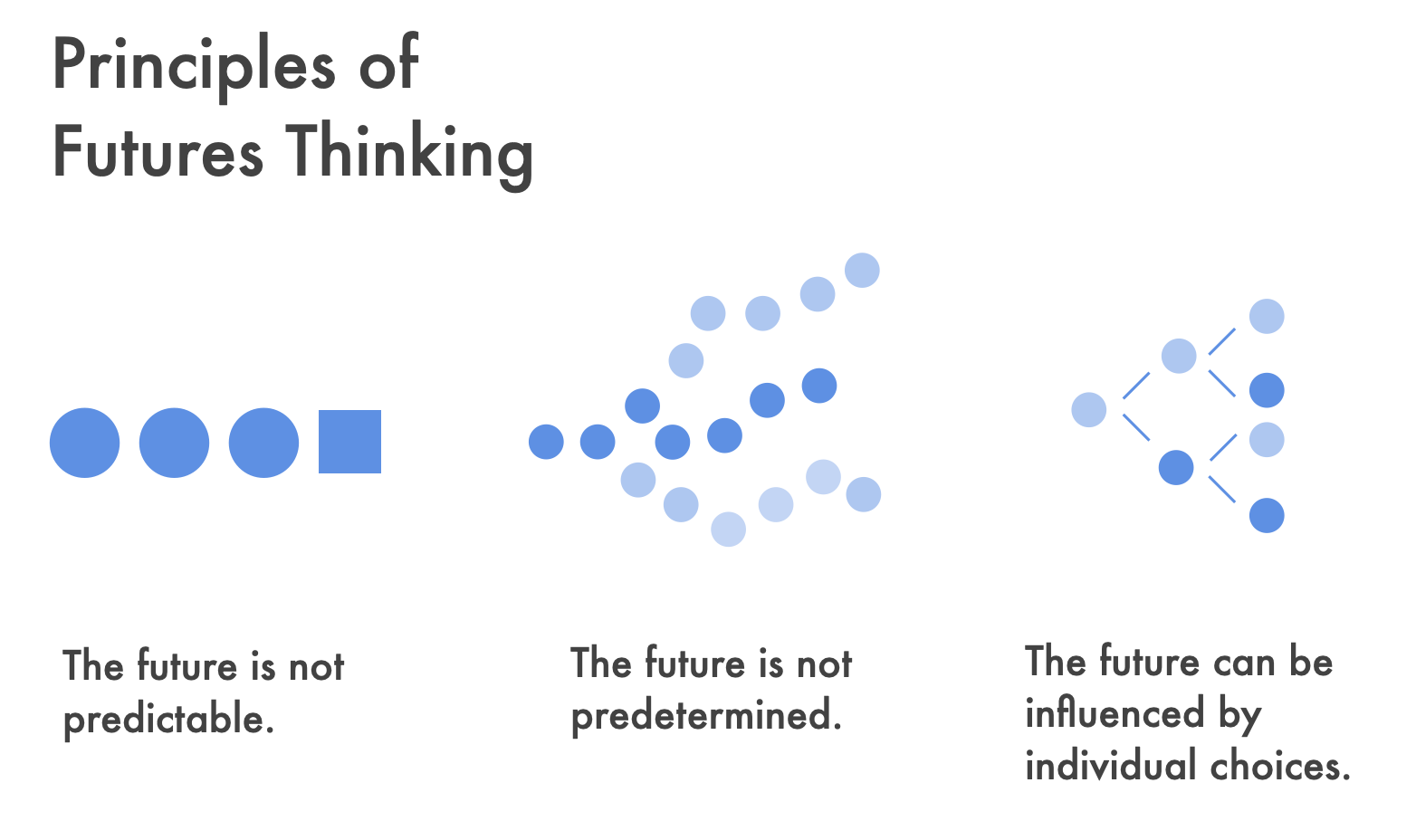Principles of Futures Thinking
I've been thinking quite a bit recently on some core principles of Futures work that Roy Amara laid out in 1981.
These principles crisply point out why Futures work is possible. They outline the space in which Futures Thinking can take place. Within that space, Future thinking can be systematic and rigorous. It can materially impact what future we will live in.
Most skeptics get hung up on Principle 1. The future is not predictable.
If the future is not predictable what’s the point in speaking about it? Is it not better to build and see what works? I was firmly in this camp for 10 years. Uncertainty is uncomfortable. Guaranteed uncertainty is almost unbearable.
Thankfully, Principles 2 and 3 act as soothing balm to the harsh burn of skepticism.
The future is not predetermined. It is not inevitable. While it is impossible to predict, there is room to change what future we arrive at. Exploring what could happen is a useful first step on that journey.
The real relief comes from Principle 3. The future can be be influenced by individual choices.
Small actions can make a difference. The future is influenceable; and it is influenceable by seemingly small contributions.
Individual choices matter.
— — —
